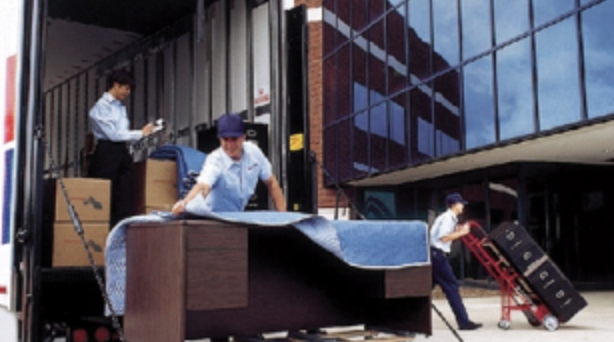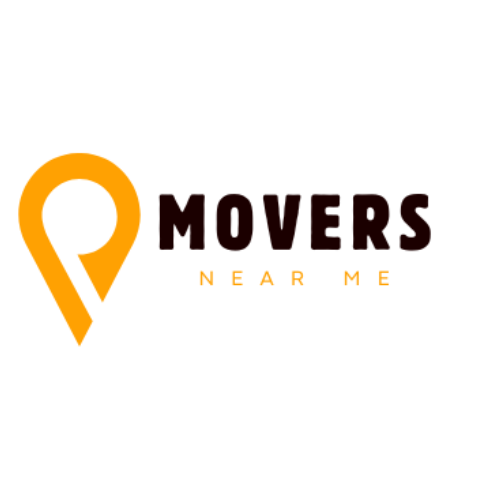OFFICE MOVERS NEAR ME
Movers Near Me will help your staff, property manager, facility manager, real estate agent, developer, builder and insurance agent find the best commercial movers. Why give your clients our website instead of a direct referral – putting the liability on our site for providing accurate information releases any responsibility from the movers damages of any type. Let us get find the best office movers for your relocation.
Choosing an Office Moving Company
- Specialization: Choose a moving company with experience in handling the specific type of office you are relocating. For example, a mover with experience in medical office relocations will be better equipped to handle sensitive medical equipment and records.
- Project Management: Look for movers that offer project management services, including planning, coordination, and execution of the move. This ensures minimal disruption to your business operations.
- References and Reviews: Ask for references from other businesses similar to yours and read online reviews to gauge the mover’s reliability, professionalism, and ability to handle complex office moves.
SPECIAL CONSIDERATIONS FOR OFFICE MOVES
Planning the Move
- Detailed Inventory: Create a comprehensive inventory of all items to be moved, including office furniture, equipment, and files. This helps in planning the logistics and ensures nothing is lost during the move.
- Floor Plan Coordination: Work with the movers to create a floor plan for the new office space. This includes determining the placement of furniture, equipment, and workstations.
- Phased Moving: Consider a phased move to minimize downtime, especially for large offices. This involves moving different departments or sections of the office at different times.
Handling Specialized Equipment
- IT Relocation: If your office has a significant amount of IT equipment, consider hiring a mover with experience in handling and transporting servers, network hardware, and computers. Some movers offer IT relocation services that include setting up and reconnecting equipment.
- Document Management: For offices that handle sensitive documents, consider a mover that offers secure document management services, including packing, transportation, and secure storage if needed.
Compliance and Regulations
- HIPAA Compliance: Medical offices must ensure that the moving company is compliant with HIPAA regulations for handling patient records and sensitive medical information.
- Data Security: For law firms, financial institutions, and tech companies, data security during the move is paramount. Ensure the moving company follows best practices for securing digital and physical data.
- OSHA Compliance: Ensure that the moving company complies with OSHA regulations, especially if the move involves heavy equipment or work in environments with specific safety requirements.
Cost and Contracts
- Transparent Pricing: Request a detailed quote that includes all aspects of the move, such as packing, transportation, unpacking, and any additional services like IT setup or storage.
- Binding Estimates: A binding estimate ensures that the cost won’t increase unless additional services are requested. This is particularly important for large or complex office moves.
- Service Level Agreements (SLAs): Consider including SLAs in the contract that outline the expected performance levels of the moving company, including timelines, handling of specific items, and response times for any issues.
Post-Move Considerations
- Unpacking and Setup: Some movers offer services to unpack and set up your office in the new location. This can include setting up workstations, reconnecting IT equipment, and organizing files.
- Debris Removal: Moving can generate a significant amount of waste, such as packing materials and old equipment. Ensure the mover provides debris removal services or arrange for a third-party to handle this.
- Final Walkthrough: Conduct a final walkthrough with the moving company to ensure everything is set up according to the plan. Address any issues immediately.

Compliance with Labor Laws
- Unionized Workforces: If your business operates in a unionized environment, ensure that the mover’s labor practices align with your existing agreements. Some commercial movers may also employ union labor, which could impact cost and scheduling.
- OSHA Compliance: The moving company should comply with Occupational Safety and Health Administration (OSHA) regulations, particularly if the move involves heavy equipment or work in environments with specific safety requirements.
Moving Different Types of Offices
Different types of offices have unique requirements when it comes to moving. Here’s a list of common office types and the specific challenges they may present:
- Corporate Offices: Typically involve moving large quantities of office furniture, computers, documents, and other general office supplies. May require coordination across multiple departments.
- Medical Offices: Include specialized equipment like X-ray machines, lab equipment, and sensitive medical records that must be handled in compliance with HIPAA regulations.
- Law Offices: Require secure handling of confidential files and records. Moving may also involve transporting large volumes of legal documents and books.
- Creative Studios: Art studios, photography studios, and design agencies may have valuable artwork, photography equipment, and design tools that need careful packing and transportation.
- Tech Startups: Often involve moving delicate IT equipment, servers, and specialized tech tools. Ensuring minimal downtime is crucial for these types of businesses.
- Educational Institutions: Schools, universities, and training centers may have a mix of office furniture, student records, lab equipment, and educational materials that need to be moved.
- Financial Institutions: Banks and financial firms require secure handling of sensitive documents, computers, and specialized financial equipment. Compliance with industry regulations is critical.
- Non-Profit Organizations: These offices may have a mix of office furniture, documents, and possibly donated items that need to be moved efficiently and cost-effectively.
- Government Offices: Require strict adherence to security protocols when moving sensitive information, computers, and equipment. Movers may need special clearances.
- Retail Offices: Involve moving inventory, point-of-sale systems, and possibly display units, in addition to standard office furniture and supplies.

